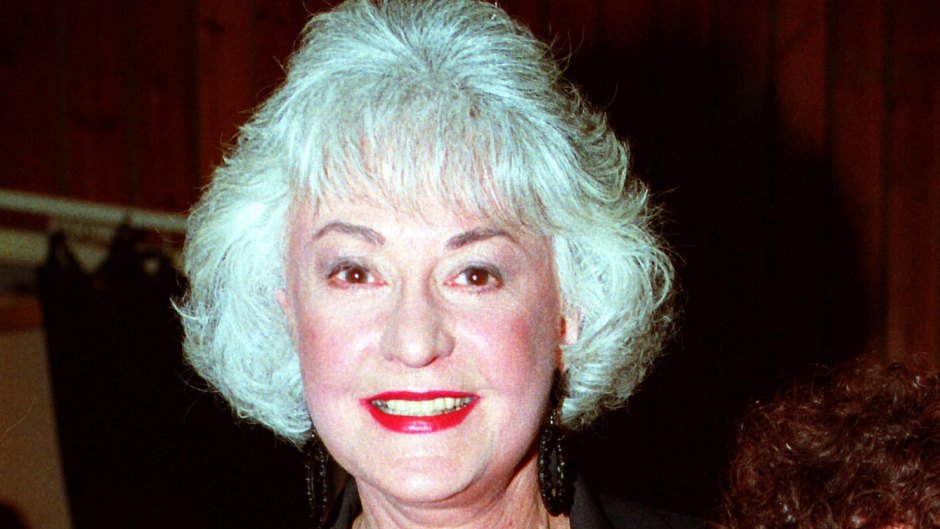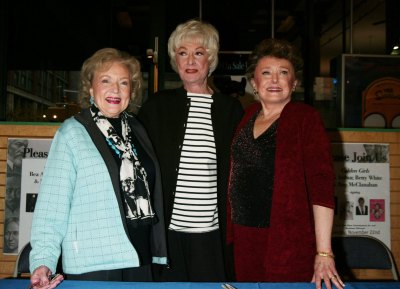
Alan Davidson/Shutterstock
The Truth About Bea Arthur: Late ‘Golden Girls’ Star’s Loved Ones Recall Fond Memories
A theater actress who became a TV star on the seminal classics Maude and The Golden Girls, Bea Arthur would have been 99 this year. The family and friends who knew her best describe a woman who loved her work but disliked the Hollywood scene. “My mom wasn’t the type that would hang around for after-work parties,” her son Matthew Saks exclusively tells Closer, recalling fond memories of the late star. “She just wanted to get back to her house. That was her routine.”
At the home she had purchased in 1975 with her second husband, theater director Gene Saks, Bea could be herself. “This is country out here,” the television icon once revealed. “I tend to be lazy, and I don’t have to put shoes on. I can walk around without anything on and nobody cares, and it’s just lovely.”
Adrienne Barbeau, who played Bea’s daughter, Carol, on Maude, remembers her adversion to shoes very well. “Sandals, maybe OK, but not shoes,” she tells Closer in the magazine’s latest issue, on newsstands now. Adrienne also remembers her TV mom as a generous professional who would urge another actor to say her line if she thought it would get a better laugh. “Bea taught me so much about comedy delivery and timing; and even more about putting the quality of the show above all else,” Adrienne says.

But it’s the private side of Bea that Adrienne remembers most fondly. “My favorite memory of Bea was standing in our rehearsal hall kitchen eating hard-boiled eggs. She taught me to put Tabasco sauce on them. I still do,” says the actress, who still makes Bea’s recipe for Chinese chicken salad.
Born in New York City but reared in Maryland, the former Bernice Frankel had dreams, but she was also practical. “I always envisioned myself like Betty Grable,” Bea once said. “Somebody really cute, and small, and blonde. To get out there and dance and sing.” But at 5-foot-9, the husky-voiced young woman struggled to find her calling.
During WWII, Bea enlisted with the Marines, where she worked as a typist, truck driver and dispatcher. She wed her first husband, Robert Arthur, in 1944, and after her discharge, studied to become a medical technician. In 1947, the couple moved to New York, where Bea began taking drama lessons with classmates Tony Curtis, Rod Steiger, Walter Matthau and Harry Belafonte. “It was a hell of a group,” she has admitted.
Theater would become a passion for Bea, who went on to earn accolades on Broadway for Threepenny Opera, Fiddler on the Roof and Mame, which won her a Tony for best featured actress. Angela Lansbury, who played the title character, would become a lifelong friend. All in the Family creator Norman Lear was also a friend. He hired Bea, then 48, for a two-part guest role playing Edith’s feminist cousin, Maude Findlay. Bea’s role on the show was so well received it led to her own sitcom, Maude, which ran for six seasons, from 1972 to 1978, and won Bea an Emmy.

“We tackled everything except hemorrhoids,” Bea once quipped about the series’ tendency to explore hot-button topics like abortion and alcoholism. But Bea tried not to allow TV stardom to change her. Mark Bish, the son of her costar Rue McClanahan, recalls attending a party at Bea’s home where she waited on her guests herself. “I remember her coming around to me asking,
“Mark, can I get you some food?” he tells Closer. “She was very concerned that I was having a good time at her party — and I did!” The fun came to a halt after Maude went off the air in 1978. Bea and Gene divorced. She endured more heartbreak as AIDS claimed the lives of many friends. “I did a number of benefits,” said Bea, who rarely talked about her frequent charity work. Her commitment was so deep that she bequeathed $300,000 to an outreach center for LGBTQ youth in New York that opened a residence that bears her name.
And then in 1985, she was persuaded to return to TV for The Golden Girls. “They sent me script and it was brilliant,” gushed Bea. The show, about four older single women sharing a home, was a hit from the start. “Like all TV shows, or even marriages, it was great in the beginning,” recalls Matthew. “But over the six years, the ideas started to run out.” And, yes, there was tension between Bea, who came from theater, and Betty White, a longtime TV star. “The problems they had were small compared to what they knew they were accomplishing,” says Jim Colucci, author of Golden Girls Forever, who explains that Betty often improvised in rehearsals while Bea adhered strictly to the script. “Bea would say something like, ‘Betty you get off book so fast it makes us all look bad!’ She was mostly joking,” says Colucci, who believes their feud was overblown.
But Bea never made apologies for wanting to make every episode the best. “Someone once accused me of trying to turn a sitcom into an art form,” admitted Bea, who died at age 86 in 2009. “I really believe that’s what I was trying to do.”









































